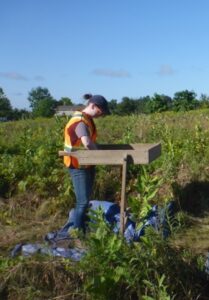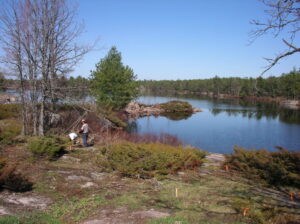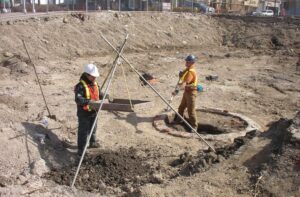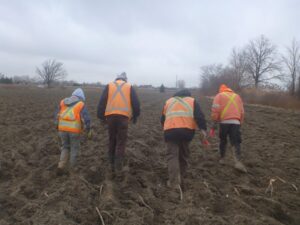
Answering Six Questions for Anyone Interested in a Job in Archaeology (updated 2023)
#1: Do I need a degree in archaeology to apply?
No. Entry-level positions such as field and mapping technicians (techs) benefit from previous education in archaeology but it is not required. Many successful field techs started in landscaping, construction, or another field such as geography or biology. During the summer months, archaeology can also be a great way for students to earn money and valuable experience. We provide comprehensive on-the-ground skills training for all new hires.
#2: How much does it pay?
Most field technicians can earn between $20.25 and $28.50 per hour depending on prior work experience, education, and level of responsibility. Field directors’ rates of pay are also determined by education and experience and start at $26.50 per hour. TMHC also covers all travel time to and from field sites once you leave our office or other marshalling location.
#3: Will I get to/have to travel?

Mostly yes. While archaeological firms can and do work on local projects, oftentimes work takes us to other parts of Ontario. Sometimes these locations are close enough to drive to and from each day using company vehicles. When further afield, expect to stay in company-provided accommodations typically leaving on Monday and returning on Friday. Food allowances, known as per diems, are provided on away days. These are funds provided to you over and above your wage to help cover the cost of your food while you’re away.
#4: What happens in Winter?
As the ground freezes, archaeology becomes harder to do and work is usually suspended until the snow clears and the ground thaws again. Typically, the archaeological field season runs from April to mid December each year weather depending. Sporadic work may also be available other months depending on conditions or types of projects. What you decide to do in the off-season is up to you. Some find other work or take a course; others enjoy a well-deserved break until the season starts up again.

#5: Could this start a career in archaeology?
That will depend on you. It takes a combination of education and experience to advance in archaeological consulting. Companies such as TMHC will support team members who show a genuine interest in the discipline and in pursuing a more long-term career. For others, a field season or two in archaeology is a great foot-in-the-door step to other jobs in engineering, resource extraction, even municipal and provincial government positions.

#6: Will I likely make meaningful friendships and have unforgettable experiences?
Okay we’re cheating a bit here, but we wish more potential hires knew about the lasting memories they’ll make in these positions. Yes, there will be hard days, hot days, cold days and the like, but just think of it as an outdoor gym you get paid to go to. While working, you’ll learn about and work alongside Indigenous peoples. You’ll probably recover artifacts from a variety of sites including early settler cabins and ancient Indigenous villages. All the while you’ll get to know some of the most interesting people you’ll encounter in your life.
Interested in applying? Check out our Job Postings page for information on current postings.
